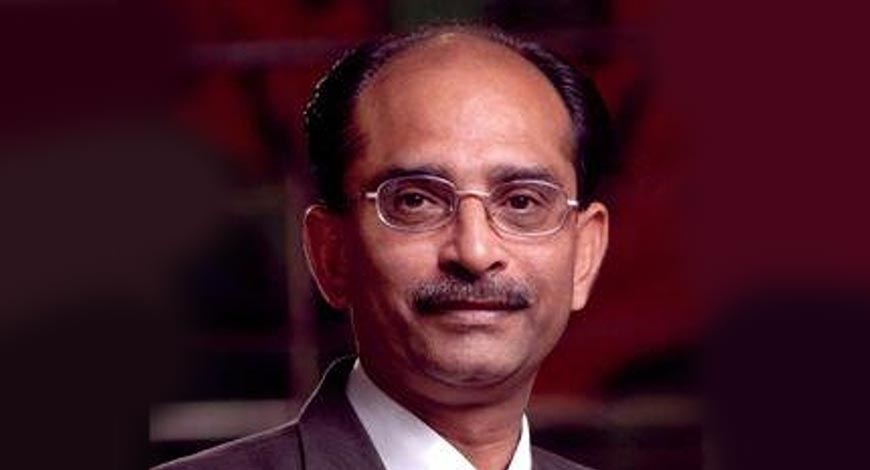Access to mobility will take precedence over using personal vehicles for multiple purposes on a regular basis. In an exclusive chat with BW Businessworld, Vishnu Mathur, director general, Society of Indian Automobile Manufacturers (SIAM), said ride-hailing services offered by Ola, Uber, etc, will change the face of urban mobility in India.
Edited excerpts:
How has the last financial year been for the auto industry? What are your current projections and what trends are you foreseeing?
During the last financial year, we have witnessed growth in most of the segments barring commercial vehicles. In the two-wheeler space, there has been a dip in motorcycle sales since its large exposure to rural market. The urban market has revived and so has scooter sales. The private vehicles (PV) industry has done reasonably well. We also hope that the commercial vehicles industry does well too in the coming few months. The key trend that I foresee in the PV space is that utility vehicles are growing very handsomely. People who were planning to buy sedans are gravitating towards compact SUVs, which are like crossovers.
During the last financial year, we have witnessed growth in most of the segments barring commercial vehicles. In the two-wheeler space, there has been a dip in motorcycle sales since its large exposure to rural market. The urban market has revived and so has scooter sales. The private vehicles (PV) industry has done reasonably well. We also hope that the commercial vehicles industry does well too in the coming few months. The key trend that I foresee in the PV space is that utility vehicles are growing very handsomely. People who were planning to buy sedans are gravitating towards compact SUVs, which are like crossovers.
The Motor Vehicle (Amendment) Bill 2016, which seeks to usher in reforms in the transport sector, has just been passed by the Lok Sabha. What are the key takeaways from it?
We are very happy that the law is through and we welcome it wholeheartedly. This is probably the first time that the safety aspect has been looked at in a holistic manner and all stakeholders of the society have been taken into consideration. Everyone, whether they are manufacturers, government, road users, road designers, etc will be held accountable.
It is also looking into the aftermarket vertical whether it is pertaining to inspection, maintenance and services. Furthermore, road rules in states would be made more cohesive, uniform and standard. For example, wearing a helmet for two-wheeler riders would be mandatory across the country. Now, there is a clearance to pave the way for a vehicle recall policy. With this coming in, there will be clauses that will enable the government to have a mandatory recall policy also. We are very positive as there is could make a huge difference for road safety in the country.
The recent Supreme Court verdict on ban on BS-IV registrations have the entire industry in a tizzy. How have the key players been able to resolve it when it comes to unsold inventory at their dealers’ end?
Firstly, there are 150,000 vehicles of various segments that are lying unsold in the country. Moreover, the vehicles that were sold on 30-31 March have not been registered by the road transport office. Original equipment manufacturers (OEMs) are looking at alternative options such exports after finetuning the vehicles to suit their requirements. The other option is getting the vehicles’ engines replaced with a BS-IV compliant engine at OEM sites.
Firstly, there are 150,000 vehicles of various segments that are lying unsold in the country. Moreover, the vehicles that were sold on 30-31 March have not been registered by the road transport office. Original equipment manufacturers (OEMs) are looking at alternative options such exports after finetuning the vehicles to suit their requirements. The other option is getting the vehicles’ engines replaced with a BS-IV compliant engine at OEM sites.
With the influx of shared mobility, do you think there will be some impact on vehicle registrations?
The influx of cab aggregators such Ola, Uber, etc., will change the face of how mobility takes place in the country. It is very difficult to say whether this is going to reduce the number of vehicles in the country because personal mobility requirements will continue to remain. A person may not use a vehicle on a regular basis. The only thing that will happen is better utilisation of the fleet.
The influx of cab aggregators such Ola, Uber, etc., will change the face of how mobility takes place in the country. It is very difficult to say whether this is going to reduce the number of vehicles in the country because personal mobility requirements will continue to remain. A person may not use a vehicle on a regular basis. The only thing that will happen is better utilisation of the fleet.
For example, I may use a personal car for a couple of hours while commuting but the vehicle is lying idle for the rest of time. That may not be the usage pattern in the future. We also have to see whether those vehicles will remain as internal combustion engines or move on to higher technologies like hybrids.
Since BS-VI emission norms will be uniformly applicable across the country by 2020, what proactive steps is the industry taking to avert any déjà vu when it comes to vehicle registrations? Also, will there be a ripple effect on the used car market?
The BS-IV fuel had come progressively since 2010. It was a question of ramping up those technologies and making the right kind of vehicles available in the market. In the case of 2020, we are leapfrogging from BS-IV to BS-VI emission norms. The BS-VI compliant fuel will not be available before 1 April 2020 and thus the technologies, which have to be tested, validated and certified for Indian conditions, are not there.
The BS-IV fuel had come progressively since 2010. It was a question of ramping up those technologies and making the right kind of vehicles available in the market. In the case of 2020, we are leapfrogging from BS-IV to BS-VI emission norms. The BS-VI compliant fuel will not be available before 1 April 2020 and thus the technologies, which have to be tested, validated and certified for Indian conditions, are not there.
It is impossible to lift technologies from overseas markets and deploy it here because of the variation in climatic conditions, driving cycles, road conditions, etc. Moreover, all these activities are not done by OEMs but global solution providers such as Bosch, Delphi, Denso, Continental, etc. So, bringing in BS-VI technologies to the entire gamut of vehicles in three years is itself a huge challenge. If the registration of BS-VI vehicles is disallowed, their production should kick off prior to that. But, they cannot leave the factory because fuel is not available.
In response to the second part of your question, only new registrations (of used vehicles) get affected. For instance, if I have a 10-year old BS-III vehicle and want to dispose it off, I will not be able to sell it to anyone based in Lucknow because that city will not register a BS-III vehicle. But I can sell it off to anyone in Delhi because it is a mere change in name (of the owner).

















